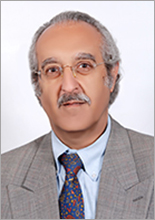State Banks and Limited Banking Competition in the Arab World
For a long time, in most of the Arab world, the dominance of state banks and often weak regulatory environments have significantly limited competition among financial services providers. State banks continue to overshadow private institutions particularly in countries such as Algeria, Libya, and Syria. The same holds true for Egypt, Jordan, Morocco, and Tunisia, despite the significant role now played by private banks in financial intermediation.
Restrictive entry requirements inhibit market contestability. Inadequate credit information systems limits access to finance, compounds risk management and provides a competitive edge to large banks vis à vis smaller competitors. In addition, the limited competition from non-banking financial institutions relieves pressures to increase efficiency. Finally, cases of government enforcement of large exposures and surviving practice of connected lending only compound the challenges to competition.
This weak competition has contributed to restricting access to finance in the Arab region. Despite being among the largest and deepest banking systems in the developing world, banks provide limited access to households and small and medium enterprises (SMEs). Inadequate long-term finance, undeveloped housing finance mechanisms, limited risk management instruments and practices are also results of this weak competition (Anzoategui, Peria, and Rocha 2010). Finally, loan concentration has been high, exceeding most emerging countries, with an average ratio among the highest in the world. This concentration underscores the prevalence of state banks, government financing, connected lending and the long-established lending relationship between banks on the one hand, and large firms and state-owned enterprises on the other.
Recognizing the challenges that weak banking competition presents, several governments are moving to increase competition to boost efficiency, stability and access to finance. Within Gulf Cooperation Council (GCC) countries, the practice of salary pledged personal loans and establishment of private credit bureaus improved households’ access and increased retail credit to an average of around 30% of loan portfolios. However, GCC countries have not yet managed to create an enabling environment for SME lending, which remains at 2% of loan portfolios. Non-GCC countries such as Lebanon and Morocco have made significant roads in increasing SME lending and mortgage finance. (Rocha, Arvai and Farazi 2011)
Several Arab countries have undertaken structural reforms to improve competition and efficiency. In addition to the restructuring and privatization of state banks, as in Algeria, Egypt, Iraq, Morocco, Syria, and Tunisia, many governments have introduced regulatory measures to promote the entry of new private banks, including foreign ones.
However, these efforts remain in their early stages. In certain countries, the tight circle of dependency between state banks and state industries must be broken if competition, efficiency and larger access are to be achieved.
References
- Anzoategui, D., M. Martinez Peria, and R. Rocha. 2010. “Bank Competition in the Middle East and North Africa Region.” Policy Research Working Paper 5363, World Bank, Washington, DC.
- Farazi, S., E. Feyen, and R. Rocha. 2011. “Bank Ownership and Performance in the Middle East and North Africa Region.” Policy Research Working Paper 5620, World Bank, Washington, DC.
- Rocha, R., Z. Arvai, and S. Farazi 2011. “Financial Access and Stability: A Road Map for the Middle East and North Africa.” World Bank, Washington, DC.
Wafik Grais is an International Senior Adviser specializing in Islamic finance, financial regulation, investment financing, private equity management, and corporate governance with expertise in SMEs and green growth financing. He was co-founder and chairman of Viveris Mashrek, a Cairo-based, financial advisory services company specialized in private equity investments in SMEs, licensed by Egypt's Financial Supervisory Authority. He spent 28 years in international finance notably with the World Bank in Washington DC where he held several senior positions both in operations and at corporate levels. He holds a Ph.D. in Economics.
